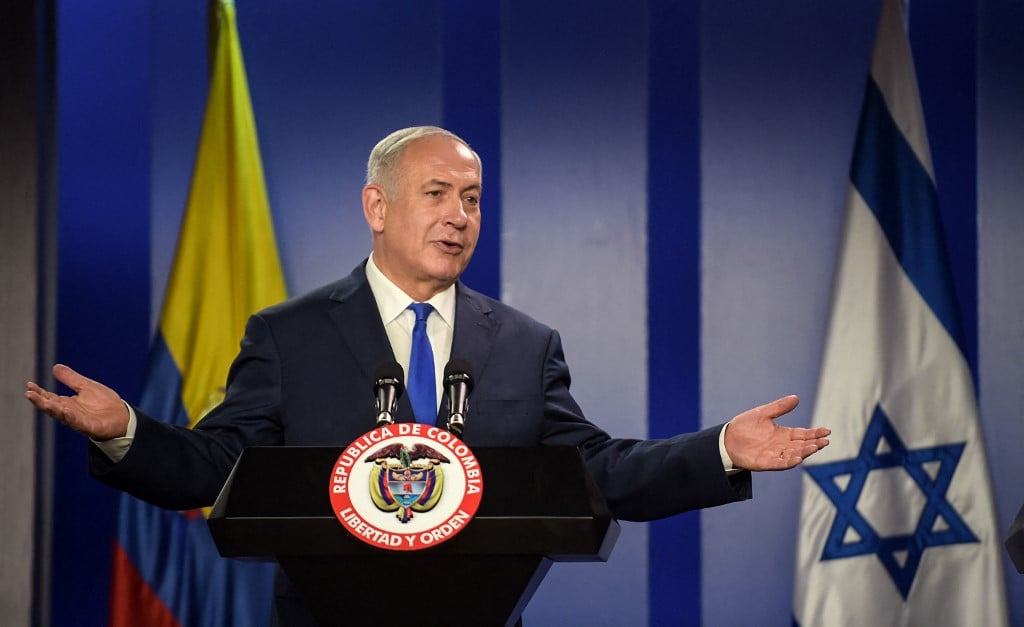On March 3, Venezuelan President Chávez called the Colombian government the “Israel of Latin America” stating, “we aren’t going to permit Colombia to become the Israel of these lands.” But this week’s comparisons of the Andes with the Middle East and Colombia with Israel did not stop there. Some of the comments were simply meant to abase Colombia, but others demonstrated actual similarities between the two regions and their ongoing conflicts that became obvious during this week’s events.
Colombia was compared to Israel by numerous critics of the Colombian government. Luis D’Elia, an Argentinean politician and activist, said that “the continent has come out to condemn the repugnant action of Colombia, which tries to assume the same geopolitical role as Israel.” Even the ELN made a statement in which it expressed its solidarity with the FARC and expressed its “extreme concern that the government of Colombia be an instrument for the expansionist and hawkish strategy of the Bush government, the same role that Israel plays in the Middle East.” Roberto Gutiérrez, the director of ANNCOL, an organization that disseminates the FARC’s views, said that Colombia’s action last weekend is comparable to that of Israel in the Middle East and the U.S. in Iraq. The comparisons took a turn to the broader Middle East when the Colombian government claimed it had proof that the FARC had been trying to buy uranium. At the OAS, Venezuelan Ambassador Jorge Valero said, “We condemn the intention to translate the disastrous experience of Iraq to the Latin American continent,” alluding to the allegations of weapons of mass destruction used to justify the invasion of Iraq. Then the website of the Venezuelan Ministry of Defense denounced the doctrine of “preventive war,” stating that “it comes from the U.S. and has been implemented in the Middle East by the state of Israel, and is now being implemented in South America through the government of Colombia and that country’s oligarchy.”
The comparisons between Israel and Colombia above were meant as an affront to Colombia, but they respond to events last week which did undeniably reveal that Colombia and Israel are facing similar challenges in their struggle for national security. David Djemal in Ecuador’s La Prensa points out that both countries are faced with the challenges of battling transnational terrorism and argues that the only way to achieve peace is at the negotiation table. Jorge Dezcallar in the Spanish newspaper Diario de Mallorca compares Colombia’s challenges to those of Israel and Turkey (both of which have attacked terrorists in foreign countries), and argues that international institutions need to be bolstered in order to create a safer world. Lionel Beehner in Slate also points to both Israel and Colombia to show that lack of clarity in international law when it comes to combating transnational terrorist organizations leads to dangerous situations.
By now there is little doubt that the Colombian government’s efforts to militarily weaken the FARC are having their intended effect in Colombia. The International Crisis Group stated that the FARC has retreated to its strongholds and been forced to change its strategies in order to confront the armed forces’ increased attacks, and this week’s murder of FARC leader Iván Ríos by his own guard is also a significant sign of the organization’s weakening. Raúl Reyes was killed in Ecuador last week, and Marulanda is thought to be hiding in Venezuela, demonstrating that the FARC’s top leaders no longer feel safe in Colombia. While this demonstrates that the government is succeeding at making Colombia inhospitable to the FARC, it also raises concerns about the internationalization of the Colombian conflict. If Colombia’s rebels continue to use neighboring countries as safe havens, last week’s crisis is likely to repeat itself, and the Colombian government is going to be faced with more Israel-like difficult situations.

Reply